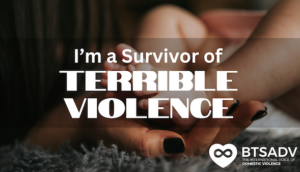By Emilie Trepanier
While Nurse Appreciation Week was from May 6th to May 12th, appreciating our nurses should never stop. The daunting times of COVID-19 continue to cause those on the front lines to put themselves in danger for the sake of their medical oaths. That’s why this year, it is especially important to recognize our nurses for their selfless sacrifices through our global pandemic.
Nurses, whose respectable profession is often stereotyped as a sex symbol or as what people do when they “can’t” be a doctor, are arguably the glue holding hospitals together. While earning a rigorous nursing degree and interning in hospitals without pay, nurses don’t lose sleep over their hardship, but for the fight they will never give up.
According to Erica Bettencourt at Diversity Nursing, nurses often play a vital role for victims of domestic violence. A nurse may be the one who first notices signs of domestic violence. They are trained to follow proper protocol and be there not only as a medical provider to victims, but also as a safe place of warmth and comfort. Victims of abuse say that the compassionate approach of a nurse helped them disclose their abuse and find intervention services. A nurse’s caring approach and awareness of domestic violence issues are meaningful for victims who can trust a validating voice who also is a health care expert.
Domestic violence is a widespread health concern. According to the Crisis Prevention Institute, “women who have been assaulted by their partner generally have worse health than other women. Health issues include chronic problems with digestion, stomach, kidney and bladder function and headaches, poorer pregnancy outcomes and lower birth weight babies.”
According to the same article, while nurses are trained to be on alert for physical injuries related to domestic violence, they primarily look for emotional indicators such as high stress, anxiety, use of drugs or alcohol, chronic headaches or stomach aches, joint pain, sexual dysfunction and more. They also observe those who appear nervous or ashamed, describe their partners as “controlling” or “prone to anger,” or who have recently separated or divorced or who don’t follow medical advice. The above symptoms can give a nurse insight into a whole picture of everyday life in addition to isolated incidents. Nurses are trained to be expert listeners who do not jump to any conclusions while assessing a patient.
Nurses are trained to ask general questions as simple as “How was your day?” and “How are things at home?” As their questions relate to a potential victim’s partner, they continue with conversational questions such as “How are you and your partner relating?” They give victims the opportunity to disclose violence on their own by asking, “Is there anything else happening in your life that could be affecting your health?”
Christi LaPrairie, Coordinator of Forensic Nursing Services and the SANE Program at Hillcrest Hospital in Tulsa, Oklahoma, was quoted by the Cleveland Clinic as saying, “We bring a trauma-informed approach to helping patients. With that background, knowledge and approach to patient care, one of the first things I think when I meet a patient is ‘What have you been through – today and throughout your life?’”
More direct questions asked can sound more like “Are you concerned for the safety of your children?” “Are you ever frightened by your partner?” or “Does your partner ever make you feel anxious or depressed?”
The above questions provide a safety net free of judgment and bias. When questions are health-centered, nurses can make it easier for a victim to come forward. A nurse’s response of listening, communicating their belief in the victim, validating how difficult it likely was for a victim to disclose, and emphasizing that violence is unacceptable, further reveals the special role nurses can play for victims.
Laura Gaertner, BSN, RN, and Forensic/Sexual Assault Nurse Examiner Coordinator at the Cleveland Clinic Fairview Hospital said, “We take care of anyone affected by violence. We see patients who have been victims of child abuse, domestic violence, interpersonal relationship violence, elder abuse, neglect, sexual assault and human trafficking.” At her hospital alone, there were nearly 70,000 victims of domestic violence reported in 2016.
A nurse’s job doesn’t stop at assessing the situation or helping a victim disclose their violence. Nurses then help the victim on their path to healing. They help a victim set a game plan for their safety and for meeting their medical needs.
We thank nurses today and every day for their approach to medical care and for everything they do that often goes unnoticed or dismissed.
If you or someone you know is in an abusive relationship, there is help. You can visit the Break the Silence Against Domestic Violence website at www.breakthesilencedv.org or chat with one of our helpline advocates at 855-287-1777.
========
Share Your Story
Sharing our stories can be incredibly empowering while also helping others connect with survivors who have similar experiences. If you are inspired to share your story with us, submit here. You can choose to remain anonymous.
You can also donate to BTSADV here.









